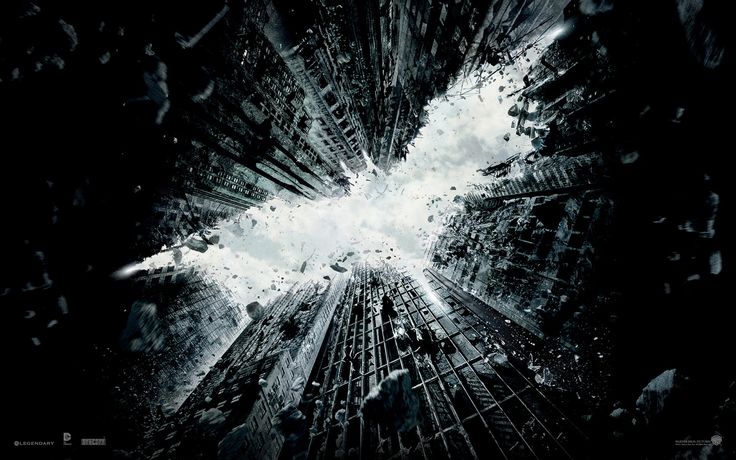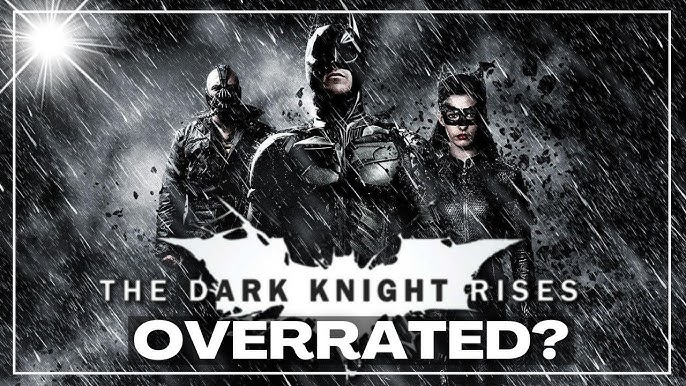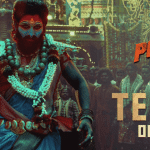🦇 The Dark Knight Rises (2012) 🃏

🦇 The Dark Knight Rises (2012) 🃏
Director: Christopher Nolan
Studio: Warner Bros. Pictures
Genre: Action, Crime, Drama
Running Time: 164 minutes
Rating: PG-13
Release Date: July 20, 2012
Overview
The grand conclusion to Christopher Nolan’s The Dark Knight Trilogy, The Dark Knight Rises is a thrilling, emotionally charged capstone that brings the story of Bruce Wayne (Christian Bale) and his alter ego, Batman, to an epic close. Filled with action, moral dilemmas, and a sense of finality, this film serves as both a thrilling spectacle and a deep exploration of redemption, fear, and sacrifice.
The film continues the narrative set by The Dark Knight (2008), dealing with the aftermath of the chaos unleashed by the Joker and Batman’s moral decisions, which have left Gotham City in disarray. The story thrusts Bruce out of self-imposed exile to confront a new, far greater threat: Bane (Tom Hardy), a ruthless mercenary who has come to bring Gotham to its knees.
Plot Summary
Eight years have passed since Batman took the fall for Harvey Dent’s crimes, disappearing into the shadows of Gotham City. Bruce Wayne, broken both physically and emotionally, has withdrawn from public life, living in seclusion at Wayne Manor. Gotham, though still under the banner of Dent’s legacy, has prospered in his absence.
However, the rise of a new, terrifying villain, Bane, forces Bruce out of retirement. Bane, a mercenary with a mysterious past and a plan to destroy Gotham, launches a brutal attack on the city, both physically and mentally. As Gotham’s social infrastructure crumbles, Bane’s true objective emerges: to fulfill the League of Shadows’ mission to destroy Gotham once and for all.
With his city and his legacy on the line, Bruce must confront not only Bane’s immense physical strength but also his own inner demons. Alongside his loyal allies, including Alfred (Michael Caine), Lucius Fox (Morgan Freeman), and new allies like Selina Kyle (Anne Hathaway) and John Blake (Joseph Gordon-Levitt), Bruce finds himself facing the ultimate question: What is the true cost of heroism?

Themes
- Redemption and Sacrifice: At the heart of The Dark Knight Rises is Bruce Wayne’s journey of redemption. After years of hiding from his past mistakes, Bruce must come to terms with his role as Gotham’s protector and embrace the sacrifice that comes with it. His physical and emotional battles are central to his redemption arc, and his ultimate sacrifice cements his legacy as a hero.
- Fear and Resilience: As the story unfolds, Bruce faces both literal and metaphorical obstacles that force him to confront his deepest fears. Bane serves as the physical manifestation of these fears, pushing Bruce to his limits. The theme of overcoming fear is also explored through Gotham’s struggle to survive Bane’s onslaught, forcing the city to rally and resist oppression.
- Legacy and Identity: The film delves deeply into the idea of legacy. Bruce grapples with the legacy of his parents, the legacy of Batman, and the impact of his decisions on Gotham. The question of whether Gotham needs Batman or a symbol of hope is central to the narrative. The characters of John Blake and Selina Kyle also embody different aspects of identity, with their personal journeys reflecting themes of redemption, choice, and moral ambiguity.
- Class Struggle and Revolution: Bane’s uprising is a reflection of class struggle, using the symbolism of the 99% versus the 1%. Gotham is presented as a city deeply divided, with systemic inequality and social unrest being manipulated by Bane to trigger a revolution. This theme echoes the idea that true power lies not just in wealth or strength but in the masses’ will to rise up against their oppressors.

Characters and Performances
- Christian Bale as Bruce Wayne/Batman delivers a fitting and emotional final performance in his portrayal of the iconic hero. Bruce’s physical and emotional transformation throughout the film is masterfully depicted, from his brokenness to his eventual resurgence. Bale’s nuanced performance allows the character to evolve, and the emotional stakes of the story are heightened by his depth.
- Tom Hardy as Bane is a formidable presence, his mask a symbol of his enigmatic and brutal nature. Hardy’s physicality and menacing voice add gravitas to Bane’s character, making him one of the most memorable villains in the trilogy. His performance gives Bane both intelligence and cruelty, cementing his place as an unforgettable antagonist.
- Anne Hathaway as Selina Kyle/Catwoman offers a refreshing and complex portrayal of the character. Hathaway’s Selina is not simply a love interest; she is a morally ambiguous figure who navigates the gray areas between good and evil. Her sharp wit, charm, and agility make her an intriguing partner to both Bruce and the story itself.
- Joseph Gordon-Levitt as John Blake is a standout in the film. As a young and idealistic Gotham City cop, Blake represents the next generation of heroes. His transformation and eventual role in the story serve as a catalyst for Bruce’s own journey, and Gordon-Levitt’s performance adds emotional weight to the narrative.
- Michael Caine as Alfred Pennyworth brings depth and tenderness to the character, showcasing Alfred’s deep love and loyalty to Bruce. His emotional scenes, particularly in his final moments with Bruce, are some of the most poignant in the film.
- Gary Oldman as Commissioner James Gordon continues to portray the moral compass of Gotham, torn between his duty and the personal sacrifice of keeping Gotham’s darkest secret.
Direction and Cinematography
Christopher Nolan’s direction is once again brilliant, using IMAX cameras to capture the scale and intensity of the film’s action sequences. The film’s set pieces are awe-inspiring, from the breathtaking opening plane heist to the climactic battle in Gotham’s streets. The film’s visual style is dark, gritty, and atmospheric, maintaining the grounded realism established in The Dark Knight.
Wally Pfister’s cinematography enhances Nolan’s direction, with sweeping cityscapes and intense close-ups that emphasize the personal stakes. The contrast between Bruce’s reclusive world and Gotham’s chaotic streets is striking, and the action is sharp, fast, and devastating.

Music
The film’s score, composed by Hans Zimmer, is as epic as the story itself. Zimmer’s compositions build on the themes of tension, heroism, and tragedy, with the iconic “Bane’s Theme” delivering an ominous and powerful undertone throughout the film. The use of a choir in the score adds an element of grandeur and emotional weight, and Zimmer’s work complements the narrative’s themes of struggle and resolution.
Critical Reception and Legacy
Upon its release, The Dark Knight Rises was met with widespread acclaim, though it received some criticism for pacing issues and its handling of certain plot points. However, the film was praised for its ambition, performances, and emotional depth, with many considering it a fitting conclusion to Nolan’s trilogy.
The film grossed over $1 billion worldwide, making it one of the highest-grossing films of all time. It solidified Batman’s place in the pantheon of cinematic heroes and left a lasting impact on superhero films, with its mature themes and complex characters influencing future genre films.
Conclusion
The Dark Knight Rises is a thrilling and thought-provoking conclusion to Christopher Nolan’s The Dark Knight Trilogy. With its epic scale, complex characters, and philosophical depth, it brings Bruce Wayne’s story to a powerful and emotional close. By blending action, morality, and redemption, Nolan delivers a film that resonates with audiences on both an intellectual and emotional level.
As Gotham faces its greatest threat, Bruce Wayne must confront his own fears, weaknesses, and the true meaning of heroism. The film stands as a testament to the enduring power of the Batman mythos and the legacy of a hero willing to sacrifice everything for the good of his city.












